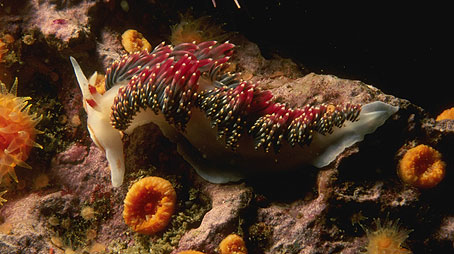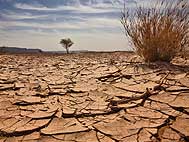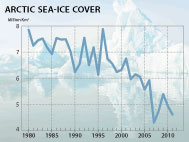| SEARCH |
-

Nov 17, 2015
Reflections on a three-decade legacy
The International Geosphere-Biosphere Programme (IGBP) will come to a close at t...
-
Nov 17, 2015
Use of and access to content on this website
Text and images produced by IGBP in house are free to use with appropriate credi...
-
Nov 12, 2015
Bella Gaia performance and panel discussion to mark IGBP's closure
A musical performance by Bella Gaia will celebrate the achievements and legacy o...
-

Towards Future Earth:
evolution or revolution?
During its three decades of existence, the International Geosphere-Biosphere Pro...
-
A personal note on IGBP and the social sciences
Humans are an integral component of the Earth system as conceptualised by IGBP. João Morais recalls key milestones in IGBP’s engagement with the social sciences and offers some words of advice for Future Earth.
-
IGBP and Earth observation:
a co-evolution
The iconic images of Earth beamed back by the earliest spacecraft helped to galvanise interest in our planet’s environment. The subsequent evolution and development of satellites for Earth observation has been intricately linked with that of IGBP and other global-change research programmes, write Jack Kaye and Cat Downy .
-
Deltas at risk
Around 500 million people worldwide live on deltas, but many of the world's deltas are sinking due ...
-
Climate change: the state of the science
A new data visualization released on the first day of the plenary negotiations at the UNFCCC’s clima...
-
Climate Change:
the State of the Science
Videos now online from the Stockholm public forum to mark the launch of the IPCC's climate report, 2...

Ocean Acidification – The Other CO2 Problem
“The ocean is sick, and one of its problems is ocean acidification,” said James Orr, chairman of the symposium’s International Scientific Planning Committee.
The ocean has provided an important buffer to higher concentrations of CO2 in the atmosphere by soaking up 4 kg of the 11 kg of the greenhouse gas produced by the average person every day. But once it mixes with seawater, CO2 dissolves, making the oceans increasingly acidic. As CO2 emissions rise, so does the acidity of the ocean. The ocean acidity level has already increased by 30% since the onset of industrialisation, with half of that increase occurring in the last 30 years. The increased acidity is adversely affecting the capability of marine corals and shell-forming organisms to build their skeletal material. It also may be affecting the development lifecycles of marine life, reducing growth, production and life spans. This is bad news for fish stocks, which are already stressed by overfishing and warmer sea temperatures.
Research presented at the symposium underscores the notion that ocean acidification is happening now and is measurable. Evidence supporting this fact includes:
- shell weights of pteropods (small plankton that are food for fish) are decreasing;
- calcification rates for coral reefs are decreasing, and will not be able to make up for the erosion of reefs by a more acidic ocean;
- impacts of ocean acidification vary with species;
- ecosystems located near undersea volcanic CO2 vents—where high CO2 levels create a more acidic local environment—have experienced a total loss of some species and reduced biodiversity, providing a glimpse of what may happen on a much larger scale if the rate of ocean acidification continues at its current pace;
- controlled laboratory experiments on the effect of ocean acidification on certain calcifiers showed that the organisms could not adapt to a more acidic environment, even after 150 generations;
- ocean acidification could impact underwater sound by increasing noise levels particularly at a shallow depth where marine mammals migrate, which could cause higher stress for them.
A key message from the symposium is that ocean acidity is expected to increase to the point where marine corals and shell forming organisms will actually start to dissolve by the middle of the century. The only way to reduce or slow the trend of ocean acidification is substantial and urgent reductions in CO2 emissions, according to scientists attending the symposium.
Prince Albert II of Monaco, whose environmental foundation provided support for the symposium, attended a special session devoted to raising awareness of ocean acidification amongst policy makers and the general public. He re-affirmed his foundation’s commitment to supporting the scientific community’s research efforts. “Only by working together will we be able to move this important issue forward,” he said.

IGBP closed at the end of 2015. This website is no longer updated.
-

Global Change Magazine No. 84
This final issue of the magazine takes stock of IGBP’s scientific and institutional accomplishments as well as its contributions to policy and capacity building. It features interviews of several past...
-

Global Change Magazine No. 83
This issue features a special section on carbon. You can read about peak greenhouse-gas emissions in China, the mitigation of black carbon emissions and the effect of the 2010-2011 La Niña event on gl...
-
INTERGOVERNMENTAL PANEL ON CLIMATE CHANGE:
How green is my future?
UN panel foresees big growth in renewable energy, but policies will dictate just how big.
-
UK:
'The Anthropocene: a new epoch of geological time?'
Royal Society, Philosphical Transactions A




















